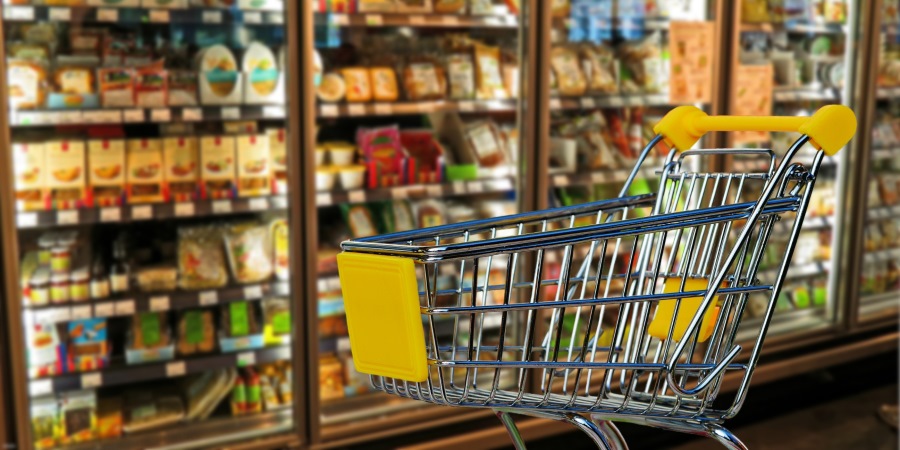Grocery sales have increased in value by 2.5% compared to this time last year despite adverse weather conditions, according to the latest grocery market share figures from Kantar Worldpanel for the 12 weeks to 25th March 2018.
Fraser McKevitt, head of retail and consumer insight at Kantar Worldpanel, stated: “The Beast from the East played havoc with consumers’ usual shopping plans. In the run up to and during the cold snap, shoppers stockpiled groceries buying 4% more items than normal, increasing the average value of a trip from £14.99 to £15.80.
McKevitt claims that warming foods and drinks were the go-to items for customers during the cold weather and that “sales of hot beverages and tinned soup grew by 8.4% and 27.5% respectively over the past month.”
An earlier Easter this year compared to 2017 also factors in motivating consumers into starting their Easter weekend shopping during March.
McKevitt continued: “Despite average prices jumping by 35p to £1.83, Easter eggs were rolling off the shelf in March with sales up 69% compared to this time last year. Hot cross buns also saw a steep rise, with sales up £7.7 million compared to this time last year.”
The discounters, Aldi and Lidl, have continued to make their mark, with both retailers achieving new market share highs. Growing sales by 10.7%, Aldi increased market share by 0.5 percentage points to reach a 7.3% share of the market, while Lidl clocked in year-on-year sales growth of 10.3% to reach a 5.3% share.
McKevitt added: “Aldi and Lidl are continuing to disrupt the market. As the discounters proceed with the expansion of their store portfolios, over the past 12 weeks 63.5% of all households visited at least one of the retailers”.
Over the past 12 weeks Tesco experienced a sales increase of 2.4% to hold market share steady at 27.6%, meanwhile Morrison’s also saw sales increase by 2.4% with a resulting market share of 10.4%.
The fastest increase experienced amongst the big four was Asda, as its market share fell back by 0.2 percentage points to 15.6%, and Sainsbury’s also saw market share drop, down 0.3 percentage points to 15.8% – despite sales growth of 0.6%.
On the other hand, online sales growth continues to slow, now only increasing by 3.6% compared to this time last year.









